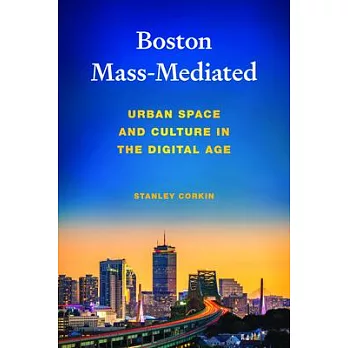"In the mid-nineteenth century, Boston fashioned itself as a global hub. By the early 1970s, it was barely a dot on the national picture, having gained a reputation as a decaying city rife with crime, dysfunctional politics, and decidedly retrograde race relations. Despite this historical ebb in its national and international presence, it still possessed the infrastructure-superb educational institutions, world-class sports teams, powerful media outlets, and extensive shipping capacity-required to eventually thrive in an age of worldwide trade and mass communication. In Boston Mass-Mediated, Stanley Corkin explores the tremendous power of mass media to define a place. He examines the tensions between the emergent and prosperous modern city of today and its representation in a range of media sources that have emphasized tropes suggestive of an earlier Boston, even as it becomes increasingly diverse and multicultural. Using Boston as a case study, Corkin contends that our contemporary sense of place is created through an increasingly media-saturated world via an explosion of digital technology that is frequently steeped in outdated preconceptions"--



 天天爆殺
天天爆殺  今日66折
今日66折 
























 博客來
博客來 博客來
博客來 博客來
博客來 博客來
博客來 博客來
博客來